The European College of Commissioners today discussed the European Agenda on Migration, presenting their final copy to the public and have proposed a temporary distribution mechanism that will be presented by the end of May.
This will be the first time the Commission has proposed activating the emergency mechanism to help Member states confronted with a sudden influx of migrants under Article 78(3) TFEU. "By the end of May, the Commission will propose a temporary distribution mechanism for persons in clear need of international protection within the EU. A proposal for a permanent EU system for relocation in emergency situations of mass influxes will follow by the end of 2015".
Three countries including the UK have an opt-out mechanism in place however, and thus could choose not to take part in this mechanism. This raised questions of solidarity during the press conference on the proposed Agenda.
Burden sharing will be based on certain criteria including GDP, population number of asylum application, persons already settled within a country and the unemployment rates.

A majority of European Union countries forming the European Council are expected to go against this idea, and have indeed already said that they are not in favour.
During a European Council meeting earlier this year, where Prime Ministers from all over the EU met, the term voluntary was used however this did not sit well with the European Parliament, who in their resolution included the word mandatory.
Parliament and Council will need to agree for action to be taken otherwise this Agenda could end in limbo.
Frans Timmermans said he is pleased to present this eu agenda on migration. Following hard work over the past few months. "The tragic loss of life in the Mediterranean has shocked all Europeans. Our citizens expect Member States and European institutions to act to prevent this tragedy from continuing unabated. The European Council clearly stated that we need to find European solutions, based on internal solidarity and the realisation that we have a common responsibility to create an effective migration policy. That is why the Commission today proposes an agenda which reflects our common values and provides an answer to our citizens' worries about unacceptable human suffering on the one hand and inadequate application of our agreed common asylum rules on the other hand. The measures we propose will help manage migration better and thus respond to the justified expectations of citizens."
The agenda is required in order to save lives and assist front line countries, he said.
Home Affaires Commissioner Dimitris Avramopoulos stressed that support will be given to front line states to speed up the processing of migrants and that those who do not receive relevant status, such as refugee status, will be sent back.
"We will adopt measures to prevent criminal activities and help bring perpetrators to justice and seize their assets. The European Agenda on Migration will strengthen Frontex in order for migrants who do not have a right to be on EU soil will be repatriated. We need to be firm. We are mobilising an additional 60 million Euros to support front line member states," he said.
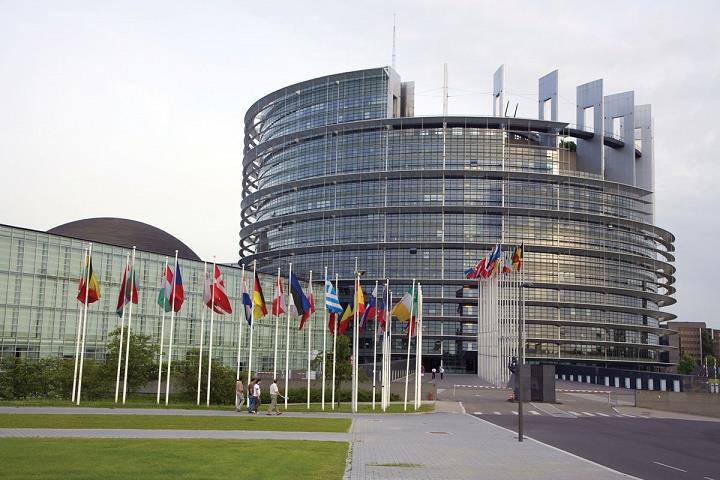
The Commission proposes a resettlement scheme, to directly resettle third country nationals to Europe in conjunction with the UNHCR, where 20,000 are proposed to be resettled by the end of May. It will be an EU-wide resettlement scheme to offer 20 000 places distributed in all Member States to displaced persons in clear need of international protection in Europe with a dedicated extra funding of €50 million for 2015 and 2016
In addition, it was stressed that a naval operation to dismantle smuggling operations will be undertaken, however that this will not result in boots on the ground in Libya. They added that in fact, they hope the operation will be done in conjunction with Libyan authorities. The Commission also proposed the launch of a Common Security and Defence Policy (CSDP) operation in the Mediterranean to dismantle traffickers' networks and fight smuggling of people, in accordance with international law.
The EU policy for Migration will be based on four pillars.
Reducing the incentives for irregular migration, notably by seconding European migration liaison officers to EU Delegations in key third countries; amending the Frontex legal basis to strengthen its role on return; a new action plan with measures that aim to transform people smuggling into high risk, low return criminal activity and addressing the root causes through development cooperation and humanitarian assistance; The Agenda would also see a pilot system established in Niger, to help provide local protection for them and work out resettlement opportunities for those in need. It would also see migration attaches deployed to Libya's neighbors and boost developmnet aid to fight poverty and remove incentives to leave.
Border management – saving lives and securing external borders, notably by strengthening the role and capacity of Frontex; helping strengthen the capacity of third countries to manage their borders; pooling further, where necessary, certain coast guard functions at EU level;
Europe's duty to protect: a strong common asylum policy: The priority is to ensure a full and coherent implementation of the Common European Asylum System, notably by promoting systematic identification and fingerprinting and with efforts to reduce its abuses by strengthening the Safe Country of Origin provisions of the Asylum Procedure Directive; evaluating and possibly revising the Dublin Regulation in 2016;
A new policy on legal migration: The focus is on maintaining a Europe in demographic decline as an attractive destination for migrants, notably by modernising and overhauling the Blue Card scheme, by reprioritising our integration policies, and by maximising the benefits of migration policy to individuals and countries of origin, including by facilitating cheaper, faster and safer remittance transfers.
Vice President Frederica Mogherini said that the problem cannot be solved quickly, adding that there are a set of EU policies that need to be linked together, in an integrated way. She mentioned coherence of trade policies, work on climate change, regional and international cooperation and internal policies on immigration and asylum as but some policies that must be created and strengthened.

The European Commission’s paper also drastically increases funds earmarked for migration - PN
The new policy on migration put forward by the European Commission is a good step forward in getting the European Union to fairly share the responsibility on migration, but commitments on paper must now be honoured in practice said the Nationalist Party today.
In her initial reaction, MEP Roberta Metsola, who is leading the negotiations on migration within the European Parliament, said that “we have seen that, at least on paper, there is an acknowledgment from the European Commission that this is a European challenge that requires a European solution in which every Member State must play its part in solidarity. The paper is ambitious and goes beyond just emergency responses, which is a positive step forward”.
“We have long called for a permanent, binding, intra-EU system of relocation of beneficiaries of international protection, once a certain threshold has been reached, from those Member States under the most pressure and the Commission has gone someway in recognising that this must happen sooner rather than later,” said Roberta Metsola.
Francis Zammit Dimech, PN Spokesperson for migration said “We also welcome the fact that assets and Frontex operations in the Mediterranean will increase in order to save lives, dismantle human smuggling networks and boost security while the geographical scope of these missions will be enlarged. Assets must be best placed to save lives”.
“It is also positive that the Commission’s approach goes beyond emergency measures and also looks at the external dimension such as the need to stabilise Libya and engage with third countries to help address the root causes of migration. The Commission will examine how EU development aid to third countries, particularly in Africa, is spent and what legal migration options and visa policies need to be studied in order to prevent people from getting on rickety boats in the first place. Furthermore I welcome the focus given to return of those people who are not eligible for protection. Our resources are limited and must be best utilised to ensure that those who deserve protection are granted it,” added Roberta Metsola.
The European Commission’s paper also drastically increases funds earmarked for migration and pushes for resettlement directly from third countries under a common EU scheme.
“The European Parliament and now the European Commission have made their positions clear. The challenge now is to ensure that the details of the policy are not interpreted restrictively and that the measures are implemented as quickly as possible by every Member State. We are cautiously hopeful that this will see things moving forward, we cannot afford to wait longer before all Member States take action”, they added.
In a tweet, Home Affairs Minister Carmelo Abela called the plan the "last chance to rebuild trust between Member States and Citizens confidence in Europe".
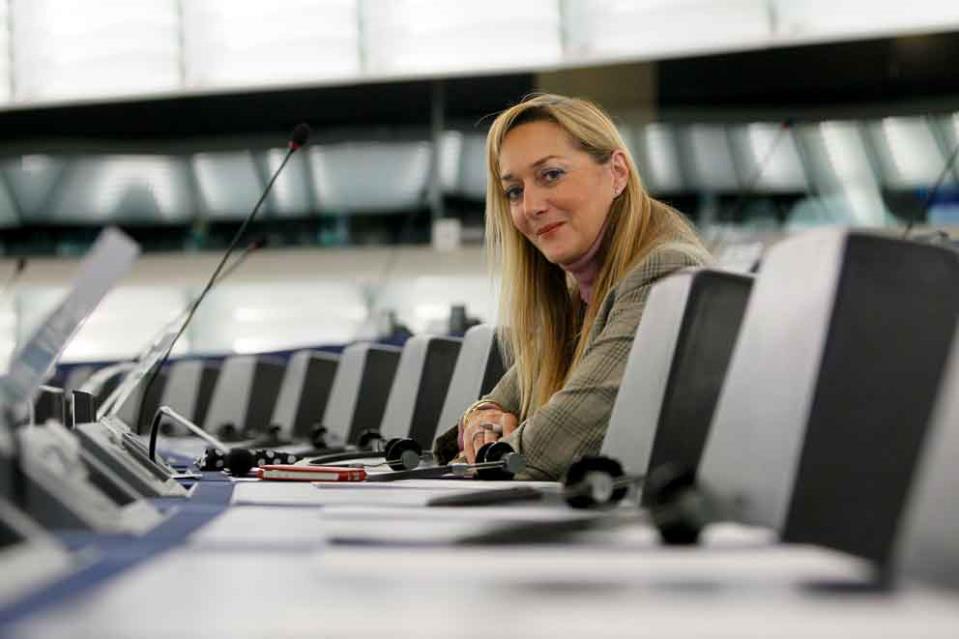
A step in the right direction
In comments to this newsroom, S&D MEP Marlene Mizzi said; "The European Agenda on Immigration is the right step forward and the four pillars on which it is based cannot be faulted. However I think that the Commission could have been a little bit more ambitious. There are still a lot of questions to be answered. In my opinion the Commission had to be more concrete and to clarify what 'mass influx' means and when exactly the emergency response mechanism will be triggered. (500 people are 'mass influx' for Malta but this might not be the case for countries like Germany.)"
" The Commission commits itself to table legislation by the end of the year to provide a mandatory and automatically-triggered relocation system, but what about clear commitment to revise Dublin Regulation. The Commission could have been also more concrete on resettlement scheme of 20,000 places and let's hope that by the end of May it will decide to present something more concrete than non-obligatory recommendations to the MS"
"The Commission proposal is focusing on firefighting and , while this is important, it has somehow ignored the root of the problem. Migration is a symptom not the cause. In my opinion the cause is not being addressed".
The EPP, the EU Parliament's largest Parliamentary group, released a press statement supporting the proposed Agenda.
"Today, the European Commission announced its Communication, the European Agenda for Migration, which lays out its political direction for the next five years. The paper covers short, medium and long-term measures. The EPP Group has welcomed the paper".
"I congratulate Commissioner Avramopoulos for his work. He has the full backing of the EPP Group for the proposed way forward. The European Parliament and the Commission have shown that they stand ready to act. Now the Member States have to prove that they are able to find a common solution to the mass influx of migration", said Monika Hohlmeier MEP, the EPP Group Coordinator in the Civil Liberties, Justice and Home Affairs Committee of the European Parliament.
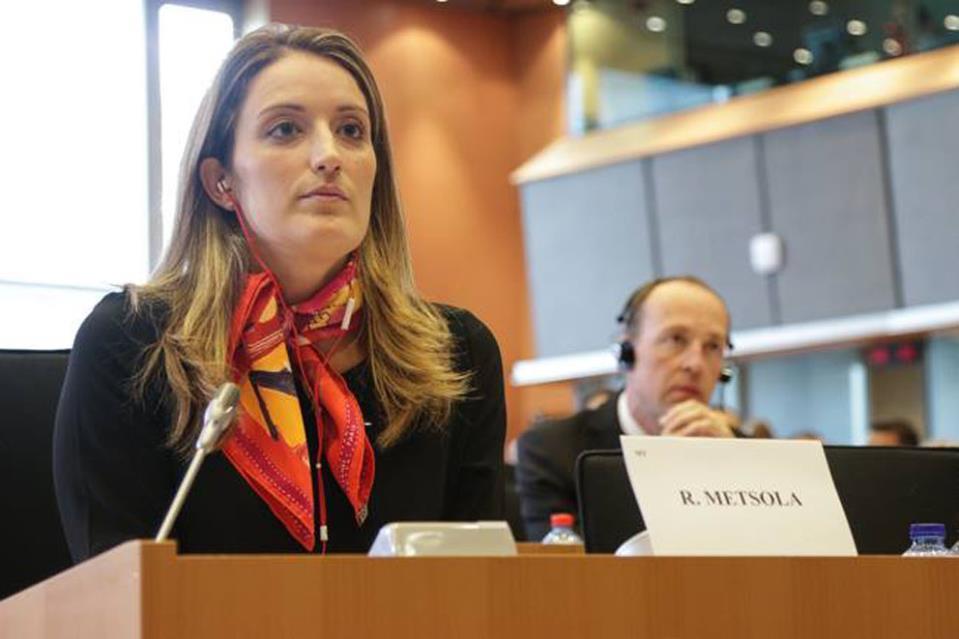
Commitments on paper must now be honoured
The EPP Group Vice-Coordinator of the same committee, Roberta Metsola MEP, said: "The new policy on migration put forward by the European Commission is a good step forward in getting the European Union to fairly share the responsibility on migration, but commitments on paper must now be honoured in practice.”
"This is an acknowledgment from the European Commission that this is a European challenge that requires a European solution in which every Member State must play its part in solidarity. The paper is ambitious and goes beyond just emergency responses, which is very positive. We have called for a fair system of distribution of beneficiaries of international protection, once a certain threshold has been reached, from those Member States under the most pressure and the Commission has recognised that this should happen sooner rather than later."
Ms Hohlmeier added: "Kicking off the emergency mechanism for redistribution and setting up a pilot centre in Niger are two steps in the right direction. A solution to the migratory pressure cannot be centred on the EU alone, therefore I welcome the vigorous efforts by the EU’s High Representative for Foreign Affairs and Security Policy, Federica Mogherini, to include countries of transit and origin in a common approach and to search and destroy vessels used by traffickers."
"The Member States' promises will be tested in two ways: firstly, they have to agree to a fair and balanced crisis mechanism for distribution, and secondly, they have to turn the promises of equipping Frontex, Europol and EASO with resources and staff into reality. I expect Heads of State and Government to pass this message to their Finance Ministers. We cannot fight against human traffickers and criminal networks without human resources staff who run the operations", Hohlmeier continued.
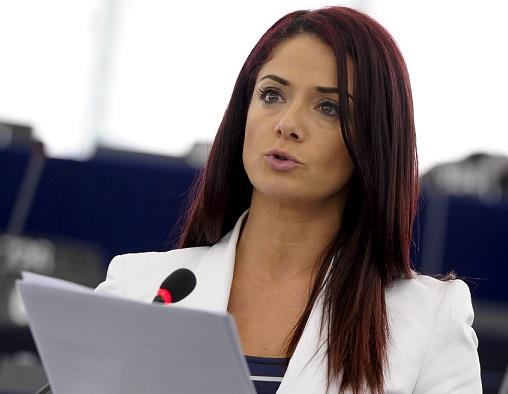
Need for a revision of Dublin regulations
In comments to this newsroom, S&D MEP Miriam Dalli said that in her first reaction, MEP Miriam Dalli said that the EU Agenda on Migration provides positive steps, however she emphasised that burden-sharing should go hand-in-hand with a revision of the Dublin Regulations. Dalli stated that all the Member States should do their part to make this Agenda on Migration a reality.
"What the European Commission presented today can be considered as important progress on certain crucial measures, including operations to save lives at sea and distribution keys on resettlement and relocation among the EU Member States. This is a European responsibility and not the duty of external border countries like Malta and Italy alone. However for this distribution key to be effective there needs to be a proper revision of the current Dublin Asylum system." The Commission proposed to undertake an evaluation of the Dublin system in 2016 and based on this evaluation will it determine whether a revision of Dublin will be to achieve a fairer distribution of asylum seekers.
"It is positive that the Commission is acknowledging the need to address the root causes of immigration by increasing engagement in areas of conflict from where people are fleeing, however I think that there is not enough emphasis on Libya. Libya is right in the centre of illegal immigration hubs and routes and the instability that is reigning in the country is making the situation much worse."
"It is positive that the Commission recognised the EU-African Union summit that will be organised in Malta as another step towards a long-term solution to address the problem of immigration."
"For this agenda to start giving results, words need to be put into action and all the Member States should do their part," she concluded
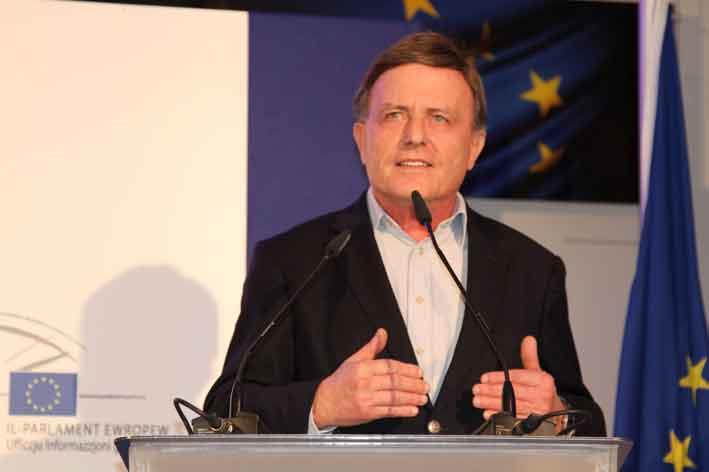
More needs to be done
"Finally, the European Commission has taken a courageous step forward to overcome the diplomatic, institutional and political logjam on the migration issue," S&D MEP Alfred Sant explained.
"More, perhaps much more, still needs to be done before one could claim that the EU has an adequate stand on the migration issue, but some significant roadblocks to a solution have been undermined, such as: the assumption that Dublin II is still relevant; the belief that voluntary burden sharing will solve problems; the idea that the EU needed to wait till Libyan political forces got their act together, before taking action to safeguard essential security interests. The Commission's efforts merit full, unqualified support".
At the 11th plenary session of the Assembly of the Union for the Mediterranean which took place in Lisbon on 11-12 May 2015, the committee on improving the quality of life, exchanges between civil societies and culture discussed immigration as a growth factor in the Mediterranean.
The committee recognised immigration as one of the greatest challenges that the EU and the Mediterranean countries face today. Regional conflicts continue to give rise to migration which affects many countries.
In the adopted recommendation, the committee encouraged the development of joint strategies coordinated by the EU with third countries, including countries of origin and transit countries, so as to better address human trafficking and the tragedies that occur at sea.
Representing the European Parliament in this discussion, Therese Comodini Cachia MEP, proposed the modification of a number of amendments to the Recommendation. "We need more coherent cooperation between the EU and Mediterranean countries in ways to seek more effective measures to address the difficulties in the countries of origin that give rise to immigration while ensuring that the fundamental rights of migrants are respected. We also need more EU cooperation in managing migration from North Africa to Europe in order to reduce the ongoing tragedy of migrants crossing the Mediterranean, possibly through a global agreement with countries of origin. We cannot allow these tragedies to keep on happening. We need strong cooperation between Member States", she added.
The Recommendation welcomes the mobility agreements contracted by the EU with third countries and also the inclusion of mobility for students and young people under the Erasmus+ Programme. The committee decided to focus its work on inter-cultural dialogue and activities in its next work programme seeing this as a key to fostering a better understanding of the different cultures in the Euro-Mediterranean region focusing on addressing stereotypes and promoting tolerance and shared values.